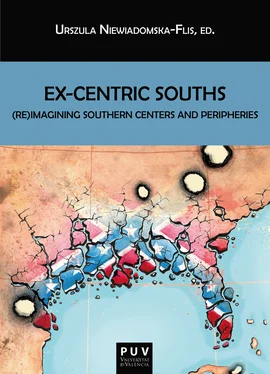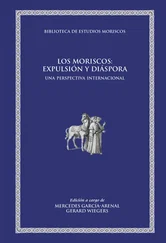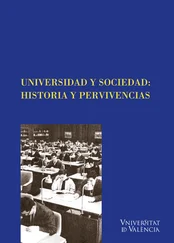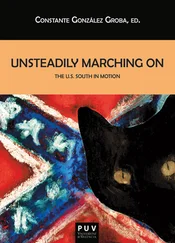Clabough, Casey. “The Imagined South” Sewanee Review 115.2 (2007): 301-307. Print.
Cohn, Deborah N. History and Memory in the Two Souths: Recent Southern and Spanish American Fiction . Vanderbilt University Press 1999. Print.
Edgerton, Adam Kirk. “What’s Wrong With Being From the South? Just Ask an Academic in the North.” The Chronicle of Higher Education. Web January 15, 2019. https://www.chronicle.com/article/What-s-Wrong-With-Being-From/243510.
Gray, Richard. Southern Aberrations: Writers of the American South and the Problems of Regionalism . Baton Rouge: Louisiana State Univ. Press, 2000. Print.
Grigsby Coffey, Michele and Jodi Skipper, eds. Navigating Souths: Transdisciplinary Explorations of a U.S. Region . Athens: The University of Georgia Press, 2017. Print.
Hackney, Sheldon. “The South as a Counterculture.” American Scholar 42 (Spring 1973): 283–93. Web 11 January 2018. www.jstor.org.
Handley, George. Postslavery Literature in the Americas: Family Portraits in Black and White . University of Virginia Press 2000. Print.
Henninger, Katherine Renee. “How New? what Place?: Southern Studies and the Rest of the World.” Contemporary Literature 45.1 (2004): 177-85. Web. 18 September 2018. https://muse.jhu.edu.
Jones, Suzanne W. and Sharon Monteith, ed. South to a New Place: Region, Literature, Culture. Baton Rouge: Louisiana State University Press, 2002. Print.
Kirby, Jack Temple. Media-made Dixie: The South in the American Imagination . Louisiana State University Press, 1978. Print.
Lowe, John. Calypso Magnolia: The Crosscurrents of Caribbean and Southern Literature . Chapel Hill: The University of North Carolina Press, 2016. Print.
Peacock, James and Carrie Mathews, eds. The American South in a Global World. Chapel Hill: UNC Press, 2005. Print.
Russ, Elizabeth Christine. The Plantation in the Postslavery Imagination . Oxford University Press, 2009. Print.
Said, Edward. Orientalism. New York: Pantheon, 1978. Print.
Stecopoulos, Harry. Reconstructing the World: Southern Fictions and U.S. Imperialisms, 1898-1976 . Ithaca: Cornell University Press, 2008. Print.
Taylor, Helen. Circling Dixie: Contemporary Southern Culture Through a Transatlantic Lens . Rutgers University, Press 2001. Print.
1 I am referring to Robert Brinkmeyer’s titular phrase: Remapping Southern Literature: Southern Writers and the West (2010).
2 See Barbara Ladd, “Dismantling the Monolith: Southern Places – Past, Present, and Future.” Critical Survey 12.1 (2000): 28-42.
3 Matthew Lassiter and Jospeh Crespino claim that “the notion of the exceptional South has served as a myth, one that has persistently distorted our understanding of American history” (7). In their book they rightly claim that while the nation has projected everything negative about itself, such as slavery, segregation, racism, sexism, homophobia, social and political conservatism, religious extremism, and capitalist exploitation, onto the regional other, these are national problems, not just limited to the South.
4 Undeniably, the South has undergone thorough social, demographic, cultural, economic, and political changes (especially after World War II). The twentieth-century process of nationalization, or mainstreaming, might have eroded some of the region’s peculiarity. For some scholars southern cultural and political distinctiveness, due to industrialization and urbanization, is but a residue of past differences, which is slowly fading away anyway. The fear of the South’s convergence with the rest of the nation is well captured in Robert Steed’s and Tod Baker’s collected volume The Disappearing South?: Studies in Regional Change and Continuity .
5 In The Resilience of Southern Identity: Why the South Still Matters in the Minds of Its People Christopher Cooper and Gibbs Knotts illustrate that despite increased mobility, cultural homogenization, diverse population growth, and in-migration, regional identity and identification is definitely far from fading.
6 To name a few: Cohn, Deborah. History and Memory in the Two Souths: Recent Southern and Spanish American Fiction . Nashville, TN: Vanderbilt UP, 1999. Cohn, Deborah N. and Jon Smith, eds. Look Away! The U.S. South in New World Studies. Durham, NC: Duke Univ. Press, 2004. McKee, Kathryn and Annette Trefzer, eds. “Global Contexts, Local Literatures: The New Southern Studies.” American Literature 78:4 (December 2006).
7 While taking a transnational turn, scholars should also bear in mind that a postcolonial approach runs the risk of making a sweeping generalization of various cultures, histories and peoples. Such a totalizing of diverse histories reduces the cultures and peoples of the Global South to a common denominator. In so doing, seeing non-Western cultures as a monolithic Global South, can eventually hegemonize the West.
8 See: Jon Smith. “The U.S. South and the Future of the Postcolonial.” The Global South 1.1 (Winter 2007): 153-158.
9 In a footnote Burton explains that passages included in this collage “come from several different pages, recombined here with ellipses. Said, Orientalism , 228 (first and second parts of the quotation), 260 (third part), 307 (fourth part), 206 (fifth part)” (12).
10 In his book The Possible South: Documentary Film and the Limitations of Biraciality , Bruce Brasell analyzes the South as an imagined community. However, he arrives at the conclusion that “[w]hile some regional institutional structures do exist, … they are too weak to sustain the formation of the region as an imagined community (or social formation), hence its circulation is dependent upon poaching local, national, and global ones as a discursive supplement” (7). He also warns against misusing the term “imagined South”: “a tendency exists among many users of the phrase to equate it with ‘representations of the South,’ which implies a separate external region to which these representations can be compare, thereby inadvertently reinscribing the old truthfulness/fictitiousness dichotomies that the concept was intended to eliminate. To refer to representations as ‘fabrications’ exemplifies the linguistic slippage such as ‘imagined South’ perpetuate, the word simultaneously meaning ‘to construct’ and ‘to pretend’” (Brasell 7).
11 I am referring here to such other publications: Robert Brinkmeyer’s Remapping Southern Literature (2000), Helen Taylor’s Circling Dixie: Contemporary Southern Culture through a
Transatlantic Lens (2001), Tara McPherson’s Reconstructing Dixie: Race, Gender, and Nostalgia in the Imagined South (2003), South to a New Place: Region, Literature, Culture , edited by Suzanne W. Jones and Sharon Monteith (2002), Deborah Cohn and Jon Smith’s edited volume Look Away! The U.S. South in New World Studies (2004), and Scott Romine’s The Real South: Southern Narrative in the Age of Cultural Reproduction (2008).
12 Barker and McKee note that “scholars have recognized that the South bears the imPrint. of hemispheric and global affiliations that wrench its notoriously self-absorbed gaze outward, beyond the confines of nation. Interdisciplinary and comparative literary studies are a further means of studying the hemispheric forces that unite locations over and around the boundaries of the nation-state that demarcate them, spilling into Latin America, the Caribbean, and Africa” (3).
13 In a similar vein, David R. Jansson explains that “the geographic ideas ‘America’ and ‘the South’ are opposite poles of a binary, and the identity of one cannot be understood except as linked to the identity of the other; therefore, representations of a degenerate South inform an exalted national identity” (“Internal Orientalism in America” 293).
Читать дальше












